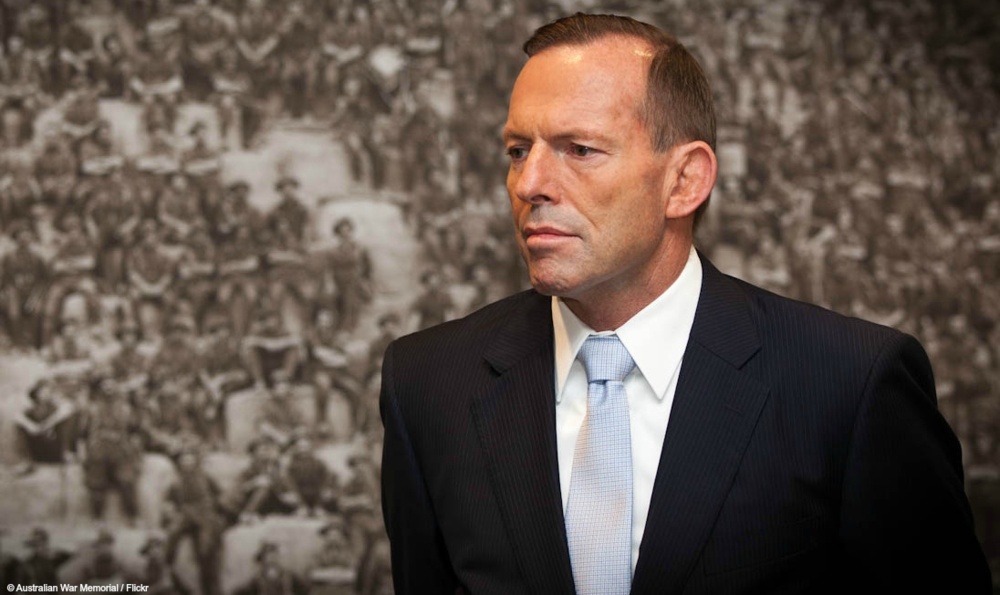
Climate justice and coal: Australia repeals carbon tax
Australia is now the first country in the world to roll back carbon pricing legislation. The European Union has expressed disappointment at the move, claiming that pricing carbon is “not only the most cost-effective way to reduce emissions, but also the tool to make the economic paradigm shift the world needs”.
The Senate voted 39 to 32 to repeal the tax, which opponents claimed was driving up electricity prices and restricting Australian industry. Addressing the Australian electorate, Prime Minister Abbott heralded the move saying that “today the tax that you voted to get rid of is finally gone. A useless destructive tax which damaged jobs, which hurt families’ cost of living and which didn't actually help the environment, is finally gone.”
Without the regulation in place, Australia stands little hope of meeting its absolute minimum target to cut emissions by 5 percent of 2000 levels by 2020. According to an Ecofys and World Bank report, scrapping the tax could lead to an increase in emissions of up to 18 percent by 2020. Scientists have repeatedly warned that the world’s industrialised countries need to significantly reduce their emissions this century to avoid a ‘dangerous’ rise in global temperatures of 2°C or more over pre-industrial levels.
This latest development is morally indefensible as much as it is scientifically unsound and environmentally damaging.
Australia is one of the largest greenhouse gas emitters in the world. In the first decade of the 21stCentury, the country released more than double the combined emissions of the 39 nations which make up the Alliance of Small Island States – many of whom are Australia’s neighbours.
When it comes to emissions per person, Australia is at the top of the table (for large countries with populations over 3 million). Its per capita emissions soar above those of its Pacific neighbours: reaching 16 times those of Papua New Guinea, 24 times those of the Solomon Islands and 31 times those of Kiribati in 2011.
Despite their negligible contribution to global emissions, climate change is at the top of the agenda for the Pacific islands. Rising sea-levels threaten the very existence of many of these low-lying states. Compound impacts from changes to rainfall patterns, coral bleaching and stronger storms, flooding and coastal erosion pose a near impossible challenge to populations who depend on the ocean and fragile island environments for their food, livelihoods and well-being.
The region is crying out for strong leadership on climate change. The Majuro Declaration, adopted by the Pacific Islands Forum in September 2013 demonstrated that vulnerable island states were willing to make strong commitments and adopt ambitious targets. Papua New Guinea has pledged to become carbon neutral by 2050. Tokelau, a tiny Polynesian territory administered by New Zealand, already leads the world by generating 150 percent renewable energy.
The call for strong emissions reductions was reiterated at the latest meeting of the Pacific Islands Forum in Palau. In his opening address Palau President Tommy Remengesau said small island nations had become “the conscience of the world” on environmental matters and urged recognition of the fact that a long term solution to the combined problems of ocean warming, rising seas and ocean acidification is dependent upon on a “big global cut in CO2 emissions”.
For wealthy Australia the plight of its Pacific neighbours may seem a world away, yet the county’s own population is also already experiencing the effects of global warming. New research by American scientists has linked drought and reduced rainfall, which has been impacting Australian agriculture and causing severe water shortages, to carbon emitting activity. This year’s heatwaves, which saw temperatures in Adelaide reaching over 44 degrees Celsius and led to prolonged and intense forest fires, have also been directly attributed to climate change.
This latest development in Australia seems to signal an abdication of responsibility as a rich country and regional heavyweight. It directly affects the underlying narrative of the global climate crisis: that those who have done the most to cause climate change are doing the least to combat it whilst those who have contributed the least to the problem are suffering the most.
In the context of soaring temperatures and rising sea-levels, Australia’s repeal of the carbon tax is a move which appears to place short-term industry interests above human and ecological ones and signals a worrying rejection of any ethical or international responsibility to mitigate further climate change.
SIGN UP FOR OUR EMAILS AND STAY UP TO DATE WITH EJF